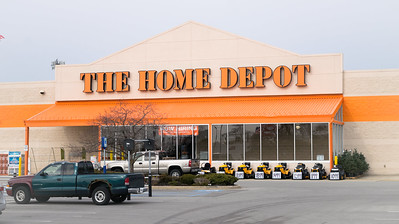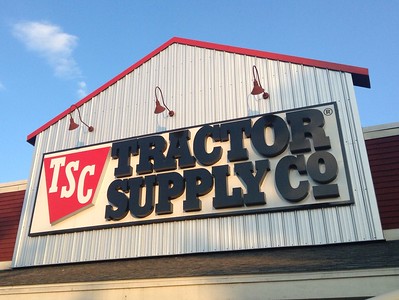
In the bustling, energy-hungry city of Los Angeles, propane serves as an essential fuel for a myriad of applications, from powering grills to heating homes. Whether you’re a homeowner, a business owner, or an avid outdoor enthusiast, understanding how and where to refill your propane tank in the City of Angels is a practical necessity.
This article will guide you through the process of propane refill in Los Angeles, helping you save both time and money.
We will delve into various aspects such as finding local refill stations, online resources for locating these services, and even mobile applications designed to simplify this essential task. With a focus on safety, affordability, and convenience, we aim to keep your propane-powered devices fueled up and ready to go, meeting all your energy needs.
By highlighting the pivotal role of propane in the LA lifestyle and providing practical refill solutions, we aim to illuminate the importance of this clean, versatile fuel source in one of the world’s most dynamic cities.
Stay tuned to keep your flame burning bright with our comprehensive guide to propane refill.
Read this related article: Propane Delivery Company in California
Cost of Propane in Los Angeles
The cost ranges between $3.50-$5. The cost of propane can vary significantly based on several factors such as the current market rate, supplier pricing, delivery fees, and more. In Los Angeles, as well as elsewhere, the price of propane in 2024 can be significantly impacted by global, national, and local dynamics. Understanding these factors, along with current price trends and comparisons, is crucial for consumers and businesses alike to make informed decisions.
Typically, prices fluctuate based on the time of year, with costs often rising in the winter due to higher demand. The size of the tank you’re filling can also affect the price. Additionally, whether you choose to refill or exchange your propane tank can impact the cost.
For the most accurate and current pricing, I recommend contacting local propane suppliers or checking their websites. You can also check with large retailers that offer propane services, like Home Depot or Lowe’s, as well as dedicated propane supply companies. Always consider comparing prices from multiple sources to ensure you get the best possible rate.
Remember that while cost is a significant consideration, it shouldn’t be the only factor in choosing a propane supplier. Reliability, service quality, safety standards, and other factors are also important to consider.
Price Comparison
Comparing propane prices in Los Angeles with those in other California cities and across the nation offers valuable insights:
- Within California: Propane prices in Los Angeles are generally competitive, but may be higher than in more rural areas of California due to higher transportation and distribution costs. Cities with easier access to propane supply lines or refineries often enjoy lower prices.
- Nationwide Comparison: Los Angeles prices are also influenced by California’s stringent environmental regulations, which can add to the cost. When compared to states with less strict regulations or those closer to propane production centers, Los Angeles may have higher prices. However, it’s important to note that states experiencing severe winters might see higher seasonal spikes in demand and corresponding prices than California.
Tips for Negotiating Prices
- Get Multiple Quotes: Contact several providers to compare prices and services. This gives you leverage in negotiations and helps you understand the market rate.
- Ask About Discounts: Many providers offer discounts for new customers, referrals, pre-payments, or automatic delivery sign-ups. Don’t hesitate to ask about any available discounts.
- Consider Your Usage: If you use a significant amount of propane, you may be able to negotiate a better rate based on your volume of use.
- Negotiate the Extras: Delivery fees, tank rental, or installation costs can sometimes be negotiated. Even if the propane price is fixed, these extras can add up.
- Lock in Rates: If you anticipate rising prices, some providers may offer the option to lock in a rate for a certain period. This can offer savings and price stability.
Read this article: Propane Refill by the Gallon Near Me
How to Find Propane Refill Provider in Los Angeles
A. Physical Locations of Propane Refill Stations
Big-Box Retailers: Many large retailers such as Home Depot and Lowe’s have propane refill stations on their premises. They are often located near the garden or outdoor equipment section.
Gas Stations: Many gas stations, especially those along major highways or in busy urban areas, also provide propane refill services.
- Read this related article: Propane Refill at Gas Station: Is It Cheaper?
Dedicated Propane Suppliers: In Los Angeles, there are several dedicated propane suppliers that offer refill services. These are usually businesses that focus on providing propane for a range of purposes, from residential to commercial use.
Sal’s Propane, Inc.
638 E Gage Ave, Los Angeles, CA 90001
Toll Free at 888-797-8077
Got Propane, Inc.
2184 E Olympic Blvd., Los Angeles, CA 90021
Phone : (213) 236-1792
Trans-Gas Propane Inc.
5440 San Fernando Rd. West I Los Angeles
Tel: 818-549-1535
Expo Propane
Los Angeles
Phone: (562) 804-3400
Propane Spot
has been serving Los Angeles
Phone: 818-768-7768
Other Suppliers in the Area:
- UHaul
- Suburban Propane
- Ferrelgas
B. Online Resources for Locating Propane Refill Stations
- Propane Supplier Websites: Companies that specialize in propane supply often have location finders on their websites. For instance, AmeriGas has a propane location finder feature on its website.
- Google Maps: By simply typing “propane refill stations” into Google Maps, you can find numerous options in your local area.
Review Websites: Websites like Yelp provide user reviews and location information for a wide variety of businesses, including propane refill stations.
C. Mobile Apps and Services for Propane Refill
- Propane Finder Apps: There are several mobile apps dedicated to helping users find propane refill stations. These include AmeriGas app, Propane Taxi, and Propane Finder.
- Delivery Apps: In some areas, it’s possible to use a delivery app to have propane delivered directly to your home or business. This is an increasingly popular option, especially for those who use propane regularly.
- Utility Company Apps: Some utility companies offer mobile apps that provide information on local propane refill stations as part of their overall service. It’s worth checking if your utility company offers such a service.
Remember, safety should always be your first priority when handling propane. Be sure to follow all guidelines and regulations when transporting and refilling propane tanks.
Read this related article: Propane Refill Near Me Open Now (How to Find 24/7 Stations)
How to Choose the Best Propane Supplier
Choosing the right propane supplier is a critical decision that can affect your home or business’s smooth operation. Here are some key factors to consider when selecting the best propane supplier:
- Price: Compare prices from different suppliers in your area. This should include the cost per gallon, delivery fees, and any other associated costs. Be wary of prices that seem too good to be true, as there may be hidden fees.
- Reliability: A reliable propane supplier should have a solid reputation for consistent delivery and fair practices. Check online reviews or ask for references to evaluate a company’s reliability.
- Service Quality: Look for a propane supplier who is responsive and values customer service. They should be easy to reach, answer your questions thoroughly, and handle any issues promptly and professionally.
- Contract Terms: Carefully review the terms of the contract or agreement. Some suppliers may require a long-term contract, while others offer a pay-as-you-go system. Make sure the terms align with your needs and expectations.
- Safety Record: Safety is paramount when dealing with propane. The supplier should comply with all safety standards and regulations and have a clean safety record. They should also provide safety information to customers.
- Delivery Options: Some suppliers offer flexible delivery options, such as automatic delivery, where the company estimates your propane use and schedules deliveries accordingly, or on-demand delivery, where you request a delivery when you need it.
- Additional Services: Some suppliers provide additional services such as equipment installation and maintenance, emergency services, or a convenient mobile app. These extra features can make the supplier more attractive depending on your needs.
- Environmental Responsibility: If you value sustainability, look for a supplier who demonstrates environmental responsibility. This could be through efficient delivery routes to reduce emissions or offering eco-friendly propane options.
Remember, the best propane supplier for you depends on your individual needs and circumstances. Take your time to research and consider all these factors before making a decision.
Comparing Propane Refill Prices in Los Angeles
A. Factors Influencing the Cost of Propane Refill
- Size of the Propane Tank: The larger the tank, the more it costs to refill. Common residential propane tank sizes range from 20 pounds (commonly used for grills) to 500 gallons or more (used for home heating).
- Market Rates: Like other commodities, propane prices are subject to supply and demand fluctuations. During high-demand periods, such as the winter season, prices can surge.
- Location: The cost of transportation and delivery can affect the price you pay for propane. If a refill station is located far from a supply point, it may charge more to cover these costs.
B. Price Comparison among Various Refill Stations
- Big-Box Retailers: Large retailers usually offer competitive prices due to their ability to buy in bulk. However, it’s always good to call ahead and confirm prices as they may vary.
- Local Suppliers: Prices at local suppliers can vary widely. It’s worth checking prices at several local suppliers to find the best deal.
- Online and Mobile Services: These services usually list their prices clearly, making it easy to compare with physical locations. Keep in mind that delivery fees may apply.
C. Ways to Save on Propane Refills
- Buying in Bulk: Some suppliers may offer discounts if you buy propane in larger quantities. This can be especially beneficial if you use propane for home heating or other high-consumption applications.
- Off-Season Refills: Filling your tank during off-peak seasons, like summer, may result in lower prices due to decreased demand.
Price Comparison: Regularly comparing prices from different suppliers, both online and offline, can help you find the best deal and save money in the long run.
Remember, while price is an important consideration, it’s also essential to consider the reliability and safety standards of the propane supplier. Cheaper isn’t always better if it compromises these crucial factors.
Regulations Governing Propane Refill in Los Angeles
A. City Regulations on Propane Refill
- Fire Department Guidelines: In Los Angeles, the Fire Department has specific guidelines for the storage and handling of propane. This includes regulations for refill stations that need to be strictly adhered to.
- Zoning and Business Licensing: Propane refill stations need specific business licenses and must conform to zoning laws. These laws dictate where such a business can operate.
- Environmental Regulations: The City of Los Angeles has strict environmental regulations in place. Propane refill stations are expected to comply with these regulations to minimize their environmental impact.
B. State Regulations on Propane Refill
- California Fire Code: The California Fire Code has provisions for the storage and handling of propane. These guidelines need to be followed by all propane refill stations in Los Angeles.
- California Air Resources Board (CARB): CARB sets regulations to protect air quality. Propane refill stations are required to adhere to these rules.
- California Department of Food and Agriculture (CDFA): The Division of Measurement Standards under CDFA is responsible for ensuring the accuracy of propane meters at refill stations.
C. Federal Regulations on Propane Refill
- Occupational Safety and Health Administration (OSHA): OSHA has guidelines that cover the handling of propane and other hazardous materials to ensure worker safety.
- Department of Transportation (DOT): DOT regulations govern the transportation of propane and should be followed when transporting propane to refill stations or from refill stations to customers.
- Environmental Protection Agency (EPA): Propane refill stations are required to comply with EPA regulations to ensure minimal environmental impact.
Regulations are essential to ensuring safety and accountability within the propane industry. As a consumer, it’s always a good idea to ensure that your chosen propane refill station adheres to these guidelines, offering you the best and safest service possible.
Refill vs Exchange for Propane Cylinder
When it comes to getting propane for your grill, heater, or other propane-powered appliances, you generally have two options: refill or exchange. Here’s a breakdown of both processes to help you decide which is the best option for you:
Read this related article: Can You Refill a Butane Lighter Before Its Empty?
Refill:
When you refill a propane tank, you simply take it to a refill station, where it’s filled back up with propane while you wait.
Pros:
- Cost-Effective: Refilling a propane tank is typically cheaper than exchanging it. You’re only paying for the propane itself, not a new tank.
- Full Tank: When you refill a tank, you get a full tank of propane. Some exchange services may not fill tanks all the way to maximum capacity due to safety measures.
Cons:
- Time-Consuming: Refilling a tank can take more time than simply exchanging it, especially if there’s a line.
- Maintenance Responsibility: The condition of the tank remains your responsibility. If a tank becomes old or worn out, you’ll need to replace it yourself.
Exchange:
With a propane tank exchange, you bring your empty tank to a retailer and simply swap it out for a full one.
Pros:
- Convenience: Exchanging a tank is quick and easy. You just drop off the empty tank and pick up a full one.
- Safety and Maintenance: When you exchange a tank, you’re getting a tank that’s been inspected and maintained by professionals. If your tank is old or damaged, this is a good way to ensure you’re using a safe, well-maintained tank.
Cons: - Cost: Exchanging a tank is typically more expensive than refilling because you’re effectively renting the tank each time you exchange it.
- Not Always Full: Exchange tanks are not always filled to their maximum capacity. They typically hold around 15 pounds of propane, even though they have the capacity to hold 20 pounds.
Overall, the choice between refilling and exchanging a propane tank depends on your specific needs and priorities. If you prioritize cost and getting a full tank, refilling may be the way to go. If convenience and maintenance are more important, then an exchange program might be a better choice.
Where Can You Exchange Propane Cylinders in Los Angeles
In Los Angeles, there are numerous places where you can exchange your propane cylinders. These include:
- Big-Box Retailers: Many large retailers offer propane cylinder exchange services. For instance, Home Depot, Lowe’s, and Walmart typically have propane exchange kiosks located outside their stores.
- Grocery Stores: Many grocery stores, such as Ralphs and Vons, offer propane cylinder exchanges. The cylinders are usually located outside the store, often near the entrance.
- Gas Stations: A number of gas stations across Los Angeles offer propane exchange services. Some Shell, Chevron, and 76 stations, among others, provide this service.
- Propane Suppliers: Certain propane suppliers offer cylinder exchange programs. These include companies like AmeriGas, which has several locations throughout Los Angeles.
- Hardware Stores: Many local hardware stores also provide propane cylinder exchange services. Ace Hardware, for instance, offers this service at various locations throughout Los Angeles.
Before heading out to exchange your propane cylinder, it’s a good idea to call ahead and confirm that the service is currently available, as availability can sometimes vary. Remember, safety is paramount when transporting propane cylinders. Always ensure the cylinder is properly secured during transport and that it’s in good condition to avoid leaks.
In Conclusion
Keeping your propane tank filled in Los Angeles doesn’t have to be a daunting task. With numerous physical locations, online resources, and convenient mobile apps available, you’re never far from a propane refill station in this vibrant city. Propane continues to be a vital source of clean, versatile energy for countless homes, businesses, and outdoor activities in Los Angeles.
Safety, of course, remains paramount when handling and transporting propane. Be sure to adhere to all guidelines and regulations to ensure a safe and smooth refill experience. By knowing where and how to refill your propane tank, you’ll not only meet your energy needs but also contribute to a more sustainable and energy-efficient Los Angeles.
As the city continues to grow and evolve, so too will the ways we use and refill propane. Keeping informed about these changes and advancements will help you stay ahead of the curve. For all things propane-related in Los Angeles, from refill stations to safety tips, remember to refer back to this comprehensive guide. Keep your propane tanks filled and your energy consumption efficient in this bustling city, and keep the flame of Los Angeles burning brightly.
Remember, propane refill in Los Angeles is more than just an energy solution – it’s a lifestyle choice that brings convenience, efficiency, and sustainability to your doorstep. Stay tuned for more insights into making the most of this incredible resource in your LA lifestyle.

Mike is an experienced propane technician with over 15 years of professional experience in the field. He has dedicated his career to helping customers with their propane needs, from installation to maintenance and repair. Together with Jeremy, he co-founded this website to provide useful information and guidance to customers seeking reliable propane services.



